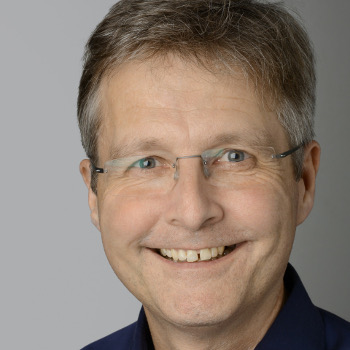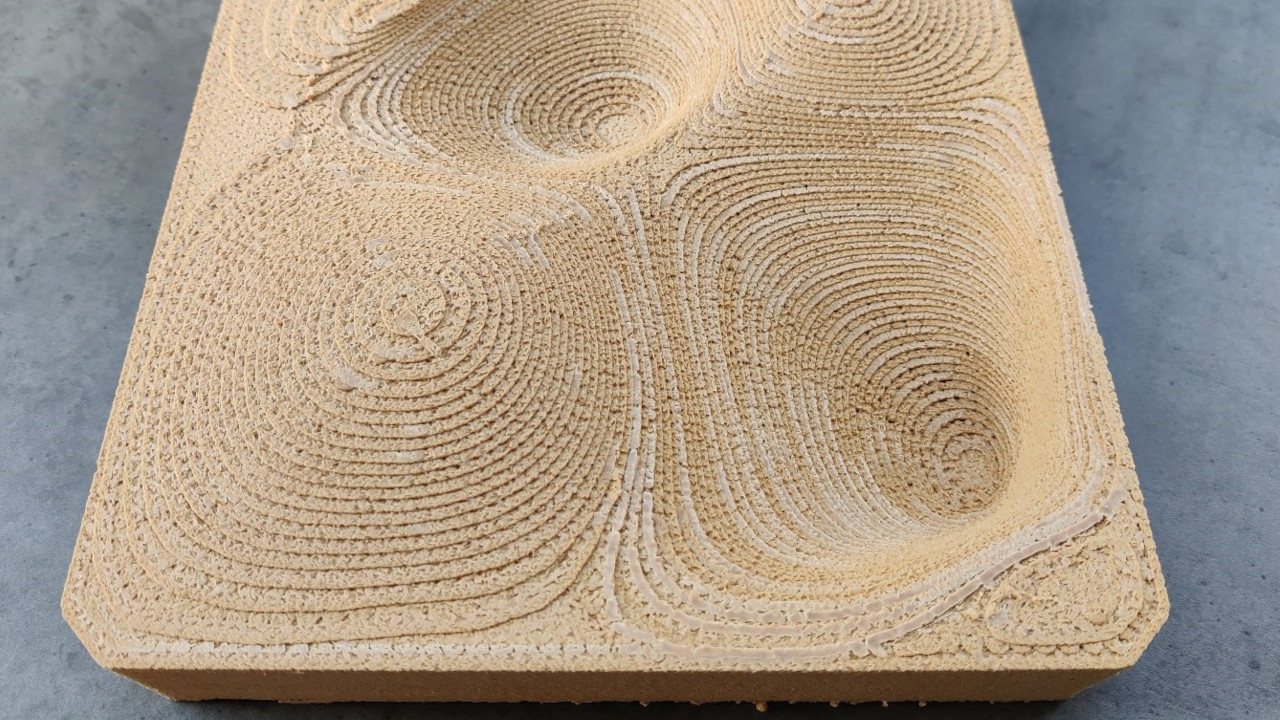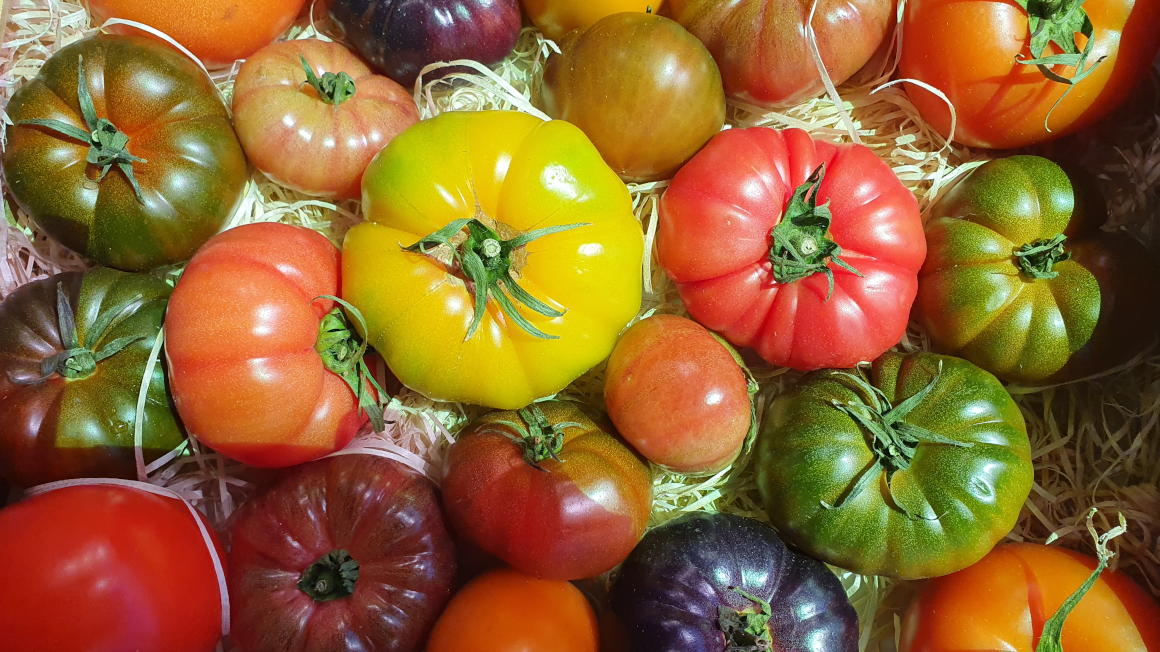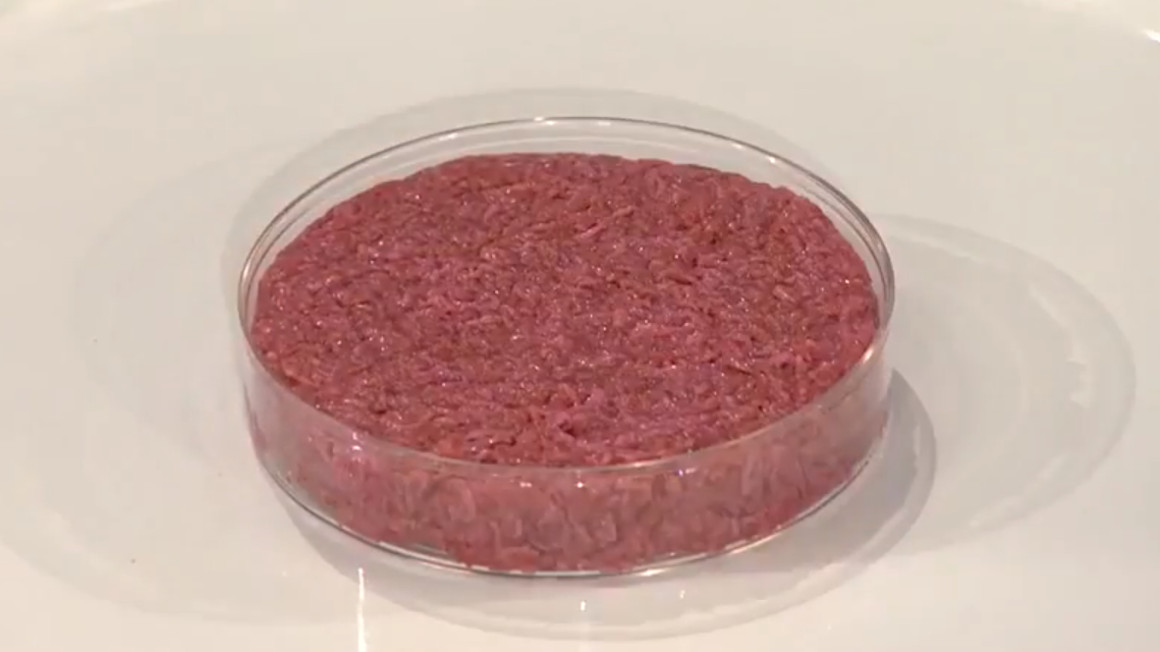On the appreciation of food
Guido RitterOccupation:
Food chemist and nutritional scientist (PhD)
Position:
Professor at the Münster University of Applied Sciences, Department of Oecotrophology and Facility Management; Director of the Institute for Sustainable Nutrition (iSuN) of Münster University of Applied Sciences

Occupation:
Food chemist and nutritional scientist (PhD)
Position:
Professor at the Münster University of Applied Sciences, Department of Oecotrophology and Facility Management; Director of the Institute for Sustainable Nutrition (iSuN) of Münster University of Applied Sciences

Vast amounts of food never make it to the dinner plate and instead end up in the bin. In Münster, Guido Ritter is committed to ensuring that food is properly valued. Among other things he is developing of new types of packaging that increase the shelf life of products.
“There are only 34 harvests left until 2050, by which time there will be 10 billion people on the planet. The time for change is now,” says Guido Ritter. In Central Europe, we live in an affluent society, while other places are characterised by scarcity. The Münster-based nutritional scientist is calling for a more sustainable attitude towards food. Above all, he is advocating for a fuller appreciation of food, combined with a forward-thinking attitude – both in industry and on the side of consumers – with the overarching aim of reducing the amounts of food that are thrown away and wasted.
Interdisciplinary teams including biologists and designers
Guido Ritter originally wanted to become a teacher but was eventually swayed by the promise of a career in chemistry: “Even as a young child, I enjoyed playing with my chemistry kit and was always keen to know how things function when they come together.” Later, these kinds of investigations would be at the heart of his training as a food chemist. Ritter completed his doctorate in 1994 at the Faculty of Nutritional Sciences at the University of Gießen, before going on to gain several years of experience in the food industry, first at Hoechst AG in Frankfurt and later at the Hoechst subsidiary, Nutrinova. In 2000, Ritter moved to the Münster University of Applied Sciences: “Since my appointment in Münster, I can now finally also work as a teacher,” says a delighted Ritter.
Over the course of his work at the University of Münster, he became increasingly aware that one specialist discipline alone would not be sufficient in any attempt to solve the complex future questions and issues regarding nutrition. “For all our projects, we always work in interdisciplinary teams including, among others, microbiologists, business economists, logistics experts and designers,” says Ritter. In 2005, the Institute for Sustainable Development was founded to facilitate and support precisely this kind of interdisciplinary research.
Endowed professorship for sustainable nutrition
In fact, the students themselves brought forth the idea of including the topic of sustainability in the nutritional sciences courses offered at Münster University of Applied Sciences. According to Ritter, the issue of sustainability was barely present in Münster before 2005. “The term sustainability originally dates back to the chemical industry in the 1990s, and was relatively contentious.”
At the urging of the students, Ritter and his colleague Petra Teitscheid looked for a suitable teaching position and eventually established the first endowed professorship in the area of sustainable nutrition of any university of applied sciences. “Oecotrophology and sustainable nutrition are actually a good fit, because it’s not just about what we eat, but how we eat,” explains Ritter.
The Ministry for Environment, Agriculture, Conservation and Consumer Protection of the State of North Rhine-Westphalia supported this development, which also attracted the interest of numerous companies. “Ten companies and two foundations have invested a total of €500,000. By now, the master’s programme on sustainable nutrition and sustainable service management has proven extremely successful. The endowed professorship, which was already perpetuated in 2010, is one part of this programme,” explains Ritter.
The proverbial square peg in a round hole
Despite an increased awareness of sustainability as a whole and sustainable nutrition in particular, there have been important challenges to overcome along the way. “Sustainability is not a very grateful topic,” emphasises Ritter. “There’s a certain friction between the fields of ecology, economics as well as the social fields.” Compromises have to be negotiated, at which point the bioeconomy often attempts to put the proverbial square into a round hole. Indeed, nature is not intrinsically economical, and economy isn’t entirely natural neither.” In Ritter’s opinion, however, it is precisely this complexity that makes the subject area so exciting and interesting.
Craft beer made from leftover bread
For Ritter, it is possible to avoid most of food waste simply via improved management on both small and larger scales. After returning from his most recent holiday, he found a few carrots in the fridge that were no longer edible. Otherwise, he tries to plan in advance so that he is not forced to throw away any food.
“It’s a lot to do with planning and organisation, and we’ve included this directly in the curriculum.” A proper understanding of the value of food and the use of leftovers are equally important. With this in mind, Ritter and his students joined forces with the brewer Philipp Overberg to brew a craft beer using leftover bread sourced from a nearby bakery. A little known fact: a portion of the barley malt that is used in the brewing process can be replaced with old bread. “This has enabled the students to directly connect and discuss the topics of residue utilisation, innovation, and new products – and we ere also able to enjoy a beer together.”
Consistency, efficiency, sufficiency
Another of Guido Ritter’s favourite topics is the improving of food packaging. “Is packaging a part of the solution, or the problem?” he asks. His projects encompass three different approaches: consistency, efficiency, and sufficiency. The aspect of consistency examines the replacement of raw materials with other, more environmentally friendly materials, such as the use of insect proteins for nutrition in place of conventional animal proteins. Efficiency focuses above all on the development of new and intelligent packaging that increases the shelf life of food products. “Alongside, we are also investigating the effects of such packaging on people’s diets and lifestyles. This is because technical solutions must also always be socially acceptable,” explains the sustainability expert. The aspect of sufficiency deals with supply and demand: What is the minimum product range and selection that is needed for people to be satisfied? “This topic is closely tied to consumer behaviour and is thus particularly tricky for researchers. The effects are sluggish and protracted,” says Ritter. “But a change in mindset is needed at the social level, and that is why we need to start making children aware of sustainable consumption as early as during their school education.”
Social aspects a focal point of the bioeconomy
In the future, Ritter will continue to focus on food packaging and strategies for waste reduction. Alongside, he is working to improve the interfaces between the areas of craftmanship, gastronomy, and science. Such approaches are exemplified by the work of the newly founded food lab at the University of Münster. Above all, however, Ritter is convinced that the social impacts of technical solutions must return into the focus of research. “Long-term and sustainable effects can only be achieved through social change.”
Author: Judith Reichel


